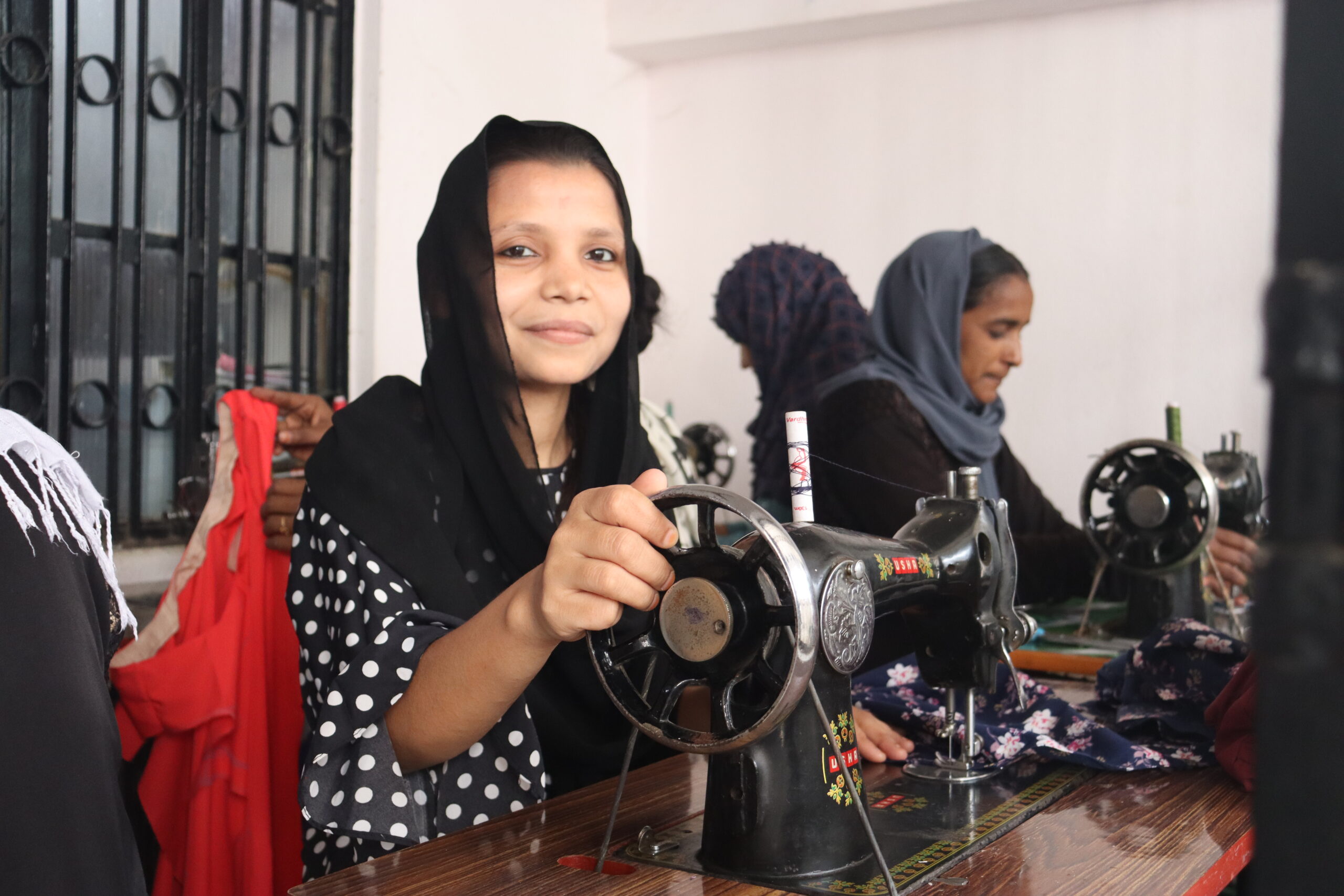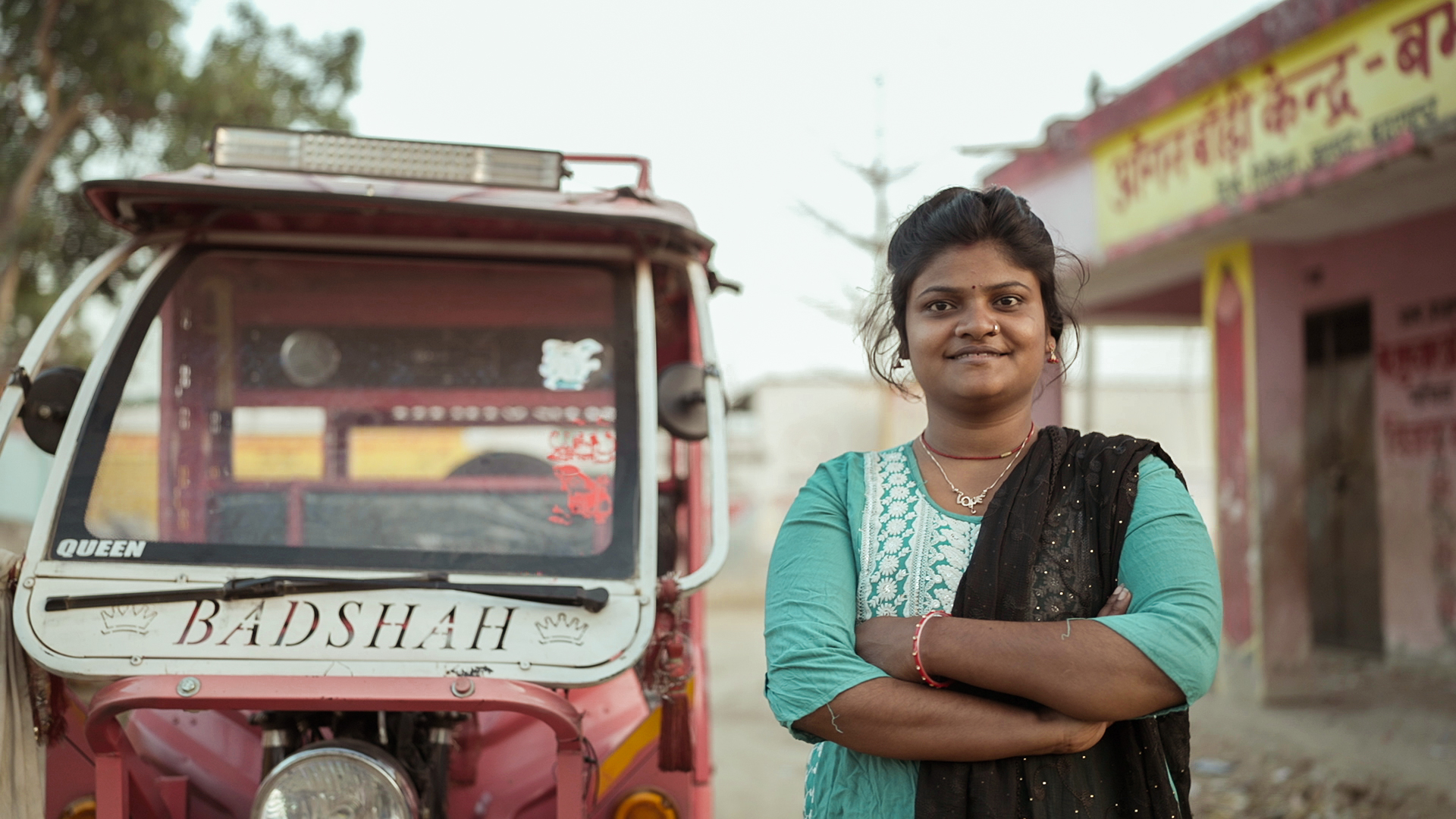Women and girls possess incredible potential to drive solutions to global challenges, including climate change, poverty, and economic instability. And while faced with social norms and challenges that restrict their accessibility and social mobility, when women succeed, so do their families and communities.
In rural India, the challenges can be even more pronounced. Social norms, limited access to education and infrastructure gaps often restrict the potential of young women. Yet, despite these barriers, many rural women are driving positive change. For low-income families, women’s earning power can be transformative, significantly improving the quality of life for whole families. When women’s earning power increases, so too does their agency and independence – it is vital to support them to find flexible ways to earn.
Project Lehar, meaning “wave” in Hindi, is a partnership between the Kings Trust International and the Aga Khan Foundation that empowers adolescent girls and young women from marginalised communities in Patna, Bihar, and Bahraich, Uttar Pradesh in India. Through scholastic support, vocational training, and life skills education, the programme equips them with the knowledge and skills needed to improve their education, health, and well-being, while exploring income-generating opportunities. By doing so, these young women are emerging as equal agents of social and economic change within their families and communities.

A new addition to the programme, the Community Challenge—enables girls to design their own solutions to issues close to their hearts, including nutrition, menstrual hygiene, dowry prohibition, child marriage prevention, and environmental care – all of which are inextricably linked to the conservative gender norms that restrict their social mobility and employment opportunities.


Project Lehar has supported girls like Prakriti. As a child, she dreamed of becoming a doctor, but the academic commitments required were financially out of reach for her family. Rather than abandon her hopes of working in healthcare altogether, Prakriti, now 18, has found a way to make it happen.
Prakriti joined Lehar while still at school. She was able to build her skills and identify her existing strengths so that she could start to earn an income. Prakriti is now working as a primary school teacher and tutors children in her community. She is saving this income to prepare for the government nursing programme to pursue her dreams of working in healthcare and becoming a nurse.

Prakriti’s journey is changing attitudes about girls’ potential among her extended family and wider community. Her grandparents, previously firmly opposed to girls’ education, are full of pride about her achievements, and the path for her younger sisters is now far less restricted.
Earlier this year, the Amal Clooney Women’s Empowerment Award Winner, Arti, also demonstrated the power of supporting women into self-employment. Young mother Arti (19) has broken the mould to become one of the first pink e-rickshaw drivers in her district in Uttar Pradesh, providing safe, eco-friendly transport for other women, and inspiring other girls in her village. Through Project Lehar, Arti was able to build her skills and confidence, enabling her to see, and then believe, that working for herself could be an option. Arti’s leap into self-employment has broken through multiple social barriers and is a trailblazing step forward for women’s physical and social mobility.

Prakriti and Arti have shown that sustainable, compassionate and locally led support, can enable girls and young women to uplift themselves and their communities. They have used their newfound opportunities to empower others and change perceptions around gender norms – creating a lehar – ‘wave’ – of empowerment and change for others to follow.




